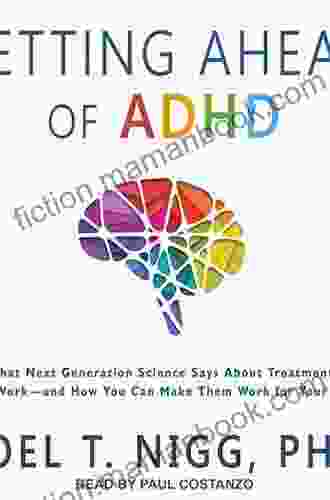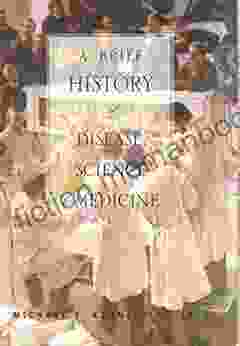Getting Ahead of ADHD: Unlocking Your Child's Potential

Attention Deficit Hyperactivity Disorder (ADHD) is a neurodevelopmental condition that affects approximately 8-11% of school-aged children.
4.5 out of 5
| Language | : | English |
| File size | : | 1430 KB |
| Text-to-Speech | : | Enabled |
| Screen Reader | : | Supported |
| Enhanced typesetting | : | Enabled |
| Word Wise | : | Enabled |
| Print length | : | 15 pages |
It is characterized by difficulty paying attention, hyperactivity, and impulsivity. These symptoms can make it difficult for children with ADHD to succeed in school, at home, and in social situations.
However, with early diagnosis and appropriate treatment, children with ADHD can learn to manage their symptoms and reach their full potential.
What are the signs and symptoms of ADHD?
The symptoms of ADHD can vary from child to child. Some of the most common symptoms include:
- Difficulty paying attention
- Hyperactivity
- Impulsivity
- Fidgeting
- Talking excessively
- Interrupting others
- Difficulty following instructions
- Losing things
- Making careless mistakes
- Avoiding tasks that require sustained attention
It is important to note that not all children with ADHD will have all of these symptoms. Some children may only have a few symptoms, while others may have many.
What causes ADHD?
The exact cause of ADHD is not known, but it is thought to be caused by a combination of genetic and environmental factors.
Some of the risk factors for ADHD include:
- Premature birth
- Low birth weight
- Exposure to lead
- Parental history of ADHD
How is ADHD diagnosed?
ADHD is diagnosed based on a clinical evaluation by a qualified mental health professional, such as a psychiatrist or psychologist.
The evaluation will typically include a review of the child's symptoms, a physical examination, and a psychological assessment.
How is ADHD treated?
There is no cure for ADHD, but there are a variety of treatments that can help to manage the symptoms.
The most common treatments for ADHD include:
- Medication
- Behavior therapy
- Parent training
- School accommodations
The best treatment for ADHD will vary from child to child. It is important to work with a qualified mental health professional to develop a treatment plan that is tailored to the child's individual needs.
What are the long-term outcomes for children with ADHD?
With early diagnosis and appropriate treatment, children with ADHD can learn to manage their symptoms and reach their full potential.
However, children with ADHD are at increased risk for a variety of problems, including:
- Academic difficulties
- Social problems
- Behavioral problems
- Mental health problems
- Substance abuse
It is important for parents and teachers to be aware of these risks and to work together to help children with ADHD succeed.
How can parents help their child with ADHD?
There are a number of things that parents can do to help their child with ADHD succeed.
Some of the most helpful things that parents can do include:
- Learn about ADHD and its symptoms
- Get your child a diagnosis and treatment plan from a qualified mental health professional
- Work with your child's teacher to develop a school accommodations plan
- Provide a structured and supportive home environment
- Use positive reinforcement to encourage good behavior
- Avoid punishment for behavior that is related to ADHD
- Be patient and understanding
Parenting a child with ADHD can be challenging, but it is important to remember that with early diagnosis and appropriate treatment, children with ADHD can learn to manage their symptoms and reach their full potential.
ADHD is a neurodevelopmental condition that affects approximately 8-11% of school-aged children. It is characterized by difficulty paying attention, hyperactivity, and impulsivity.
With early diagnosis and appropriate treatment, children with ADHD can learn to manage their symptoms and reach their full potential. However, children with ADHD are at increased risk for a variety of problems, including academic difficulties, social problems, behavioral problems, mental health problems, and substance abuse.
Parents can play a vital role in helping their child with ADHD succeed. By learning about ADHD and its symptoms, getting their child a diagnosis and treatment plan, working with their child's teacher to develop a school accommodations plan, and providing a structured and supportive home environment, parents can help their child with ADHD reach their full potential.
4.5 out of 5
| Language | : | English |
| File size | : | 1430 KB |
| Text-to-Speech | : | Enabled |
| Screen Reader | : | Supported |
| Enhanced typesetting | : | Enabled |
| Word Wise | : | Enabled |
| Print length | : | 15 pages |
Do you want to contribute by writing guest posts on this blog?
Please contact us and send us a resume of previous articles that you have written.
 Top Book
Top Book Novel
Novel Fiction
Fiction Nonfiction
Nonfiction Literature
Literature Paperback
Paperback Hardcover
Hardcover E-book
E-book Audiobook
Audiobook Bestseller
Bestseller Classic
Classic Mystery
Mystery Thriller
Thriller Romance
Romance Fantasy
Fantasy Science Fiction
Science Fiction Biography
Biography Memoir
Memoir Autobiography
Autobiography Poetry
Poetry Drama
Drama Historical Fiction
Historical Fiction Self-help
Self-help Young Adult
Young Adult Childrens Books
Childrens Books Graphic Novel
Graphic Novel Anthology
Anthology Series
Series Encyclopedia
Encyclopedia Reference
Reference Guidebook
Guidebook Textbook
Textbook Workbook
Workbook Journal
Journal Diary
Diary Manuscript
Manuscript Folio
Folio Pulp Fiction
Pulp Fiction Short Stories
Short Stories Fairy Tales
Fairy Tales Fables
Fables Mythology
Mythology Philosophy
Philosophy Religion
Religion Spirituality
Spirituality Essays
Essays Critique
Critique Commentary
Commentary Glossary
Glossary Bibliography
Bibliography Index
Index Table of Contents
Table of Contents Preface
Preface Introduction
Introduction Foreword
Foreword Afterword
Afterword Appendices
Appendices Annotations
Annotations Footnotes
Footnotes Epilogue
Epilogue Prologue
Prologue Pippa Dacosta
Pippa Dacosta Terry Collins
Terry Collins Sophia A Yin
Sophia A Yin Thomas Murphy
Thomas Murphy Khanjan Mehta
Khanjan Mehta Eivor Martinus
Eivor Martinus Lm Preston
Lm Preston Lance Morcan
Lance Morcan John E Marthinsen
John E Marthinsen Caleb Howard Courtney
Caleb Howard Courtney Richard Dawkins
Richard Dawkins Ian C Dawkins Moore
Ian C Dawkins Moore Robin Wilkinson
Robin Wilkinson Carolyn Meyer
Carolyn Meyer Hamish Coates
Hamish Coates Jamie A Waters
Jamie A Waters James Goldberg
James Goldberg Louis Begley
Louis Begley Peter Robison
Peter Robison Peter Swan
Peter Swan
Light bulbAdvertise smarter! Our strategic ad space ensures maximum exposure. Reserve your spot today!

 Grayson BellCrochet Pattern: Knobby Noggin Newsboy Hat for All Sizes - A Busy Mom's Dream
Grayson BellCrochet Pattern: Knobby Noggin Newsboy Hat for All Sizes - A Busy Mom's Dream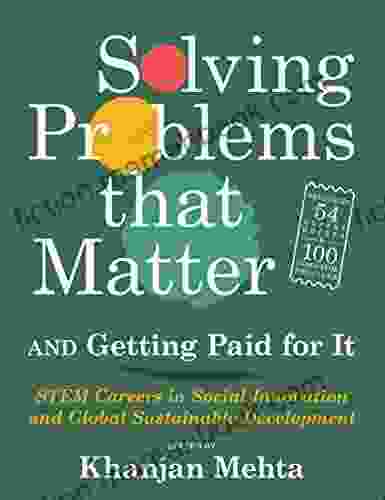
 Gil TurnerEmpowering Problem-Solvers: Solving Problems that Matter and Getting Paid for...
Gil TurnerEmpowering Problem-Solvers: Solving Problems that Matter and Getting Paid for... Samuel BeckettFollow ·12.6k
Samuel BeckettFollow ·12.6k Dale MitchellFollow ·15.1k
Dale MitchellFollow ·15.1k Donovan CarterFollow ·7.5k
Donovan CarterFollow ·7.5k Darrell PowellFollow ·19.8k
Darrell PowellFollow ·19.8k Al FosterFollow ·18.4k
Al FosterFollow ·18.4k Branden SimmonsFollow ·2.4k
Branden SimmonsFollow ·2.4k Fernando PessoaFollow ·7.6k
Fernando PessoaFollow ·7.6k Ian McEwanFollow ·14.4k
Ian McEwanFollow ·14.4k
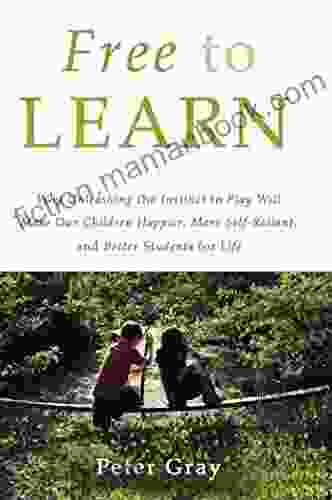
 Abe Mitchell
Abe MitchellWhy Unleashing the Instinct to Play Will Make Our...
Play is an essential part of childhood. It is...
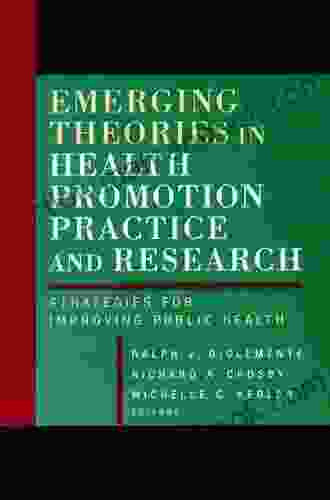
 Rubén Darío
Rubén DaríoTheory in Health Promotion Research and Practice
Theory is essential...

 Howard Blair
Howard BlairFailing Students or Failing Schools: Uncovering the Root...
In the United States, the issue of failing...

 Ira Cox
Ira CoxPoetry From the Heart Chope: A Symphony of Soul and Verse
Embark on a literary...

 Easton Powell
Easton PowellThe Witch Hunt: Wicked Witches of Shadow Woods
In the cursed woods of...
4.5 out of 5
| Language | : | English |
| File size | : | 1430 KB |
| Text-to-Speech | : | Enabled |
| Screen Reader | : | Supported |
| Enhanced typesetting | : | Enabled |
| Word Wise | : | Enabled |
| Print length | : | 15 pages |


